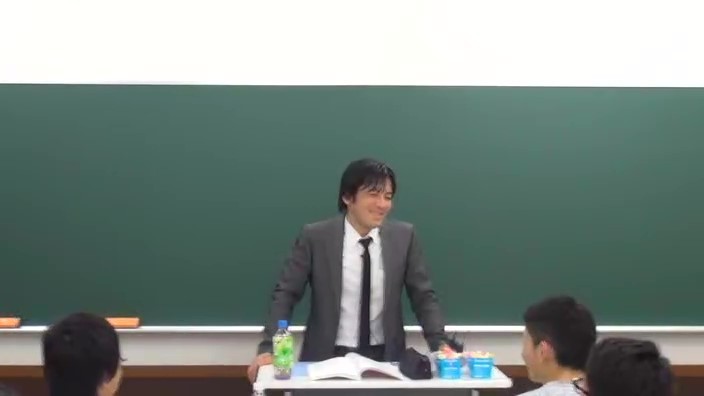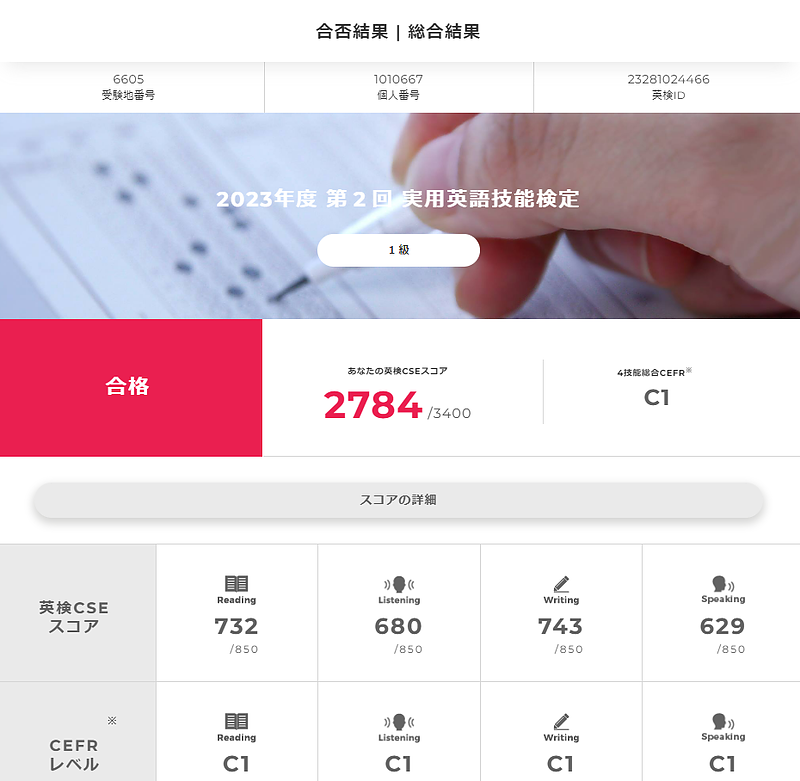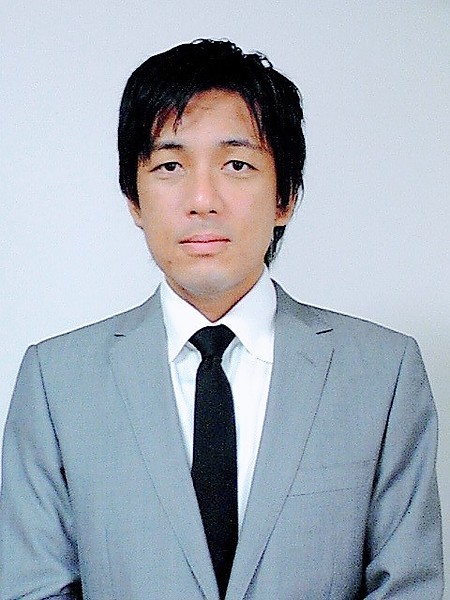英検1級【必須単語】《脳幹浸透英文》②
I finally talked her ( ) lending me the book.
① after
② while
③ of
④ into
『Aに話して~してもらう』
・talk A into doing
・persuade A to do
・convince A to do
・get A to do
・urge A to do
・prompt A to do
『Aに話して~するのをやめさせる』
・talk A out of doing
・dissuade A from doing
・discourage A from doing
・deter A from doing
正解:④
「私はとうとう彼女がその本を私に貸すように説得した」
I finally talked her into lending me the book.
I eventually persuaded her to lend me the book.
After some convincing, she agreed to let me borrow the book.
It took a while, but I managed to get her to loan me the book.
She resisted at first, but I eventually talked her into letting me borrow the book.
I have just received a letter from a friend ( ) that she is coming to see me next week.
① being written
② writing
③ being said
④ saying
<S say+that節>
「Sには~と書いてある」
この意味では say のみ使われる。
日本語の感覚で②を選らんではダメ。
次の区別もよく焦点となる。
『書く』
・write
・compose
・draft
・record
『描く』
・draw
・sketch
・paint
・depict
正解:④
「来週会いに来ると書いてある手紙を受け取った」
I have just received a letter from a friend saying that she is coming to see me next week.
A letter from a friend just arrived, informing me that she will visit me next week.
I've recently got a letter from a friend, stating her plans to visit me next week.
Just got word from a friend in a letter – she's coming to see me next week.
Received a letter from a friend who mentioned her upcoming visit next week.
He reminded his friend ( ) at 9:00 a.m.
① for waking up
② he wake him up
③ to being waken up
④ to wake him up
<remind A to do>
「Aに ~ するのを気づかせる」
remaind の語法は頻出するが, 先ずは目的語に
〈人〉を取ることを意識すべき。
☆ remind+人+of+モノ・事
☆ remind+人+that 節
☆ remind+人+wh-
She reminded him of the meeting tomorrow.
彼女は彼に明日の会議を思い出させた。
I reminded her that we need to buy groceries.
私は彼女に食料品を買わなければならないことを思い出させた。
The teacher reminded the students who hadn't submitted their homework.
先生は宿題を提出していない生徒たちに思い出させた。
正解:②
「彼は友達に午前9時に彼を起こすように思い出させた」
He reminded his friend he wake him up at 9:00 a.m.
He made sure to remind his friend that he would wake him up at 9:00 a.m.
Reminding his friend, he mentioned he'd be waking him up at 9:00 a.m.
He gave his friend a heads-up, saying he'd wake him up at 9:00 a.m.
Making it clear, he reminded his friend about the 9:00 a.m. wake-up call.
I never see this photo without ( ) my happy days in the countryside.
① reminding of
② reminding
③ being reminded of
④ reminded of
<never…without doing>
「~ しないで…しない」
▸「…すると必ず ~ する」《二重否定》
She never goes to bed without brushing her teeth.
=She always brushes her teeth before going to bed.
彼女は寝る前にはいつも歯を磨きます。
<remind A of B>
「AにBを思い出させる」
問題文を書き換えると,
I’m reminded of my happy days in the countryside whenever I see this photo.
正解:③
「この写真を見ると必ず田舎の幸せな日々を思い出す」
I never see this photo without being reminded of my happy days in the countryside.
Whenever I see this photo, it always brings back memories of my joyful days in the countryside.
This photo never fails to remind me of the happy times I had in the countryside.
Every time I look at this picture, I am reminded of the wonderful days I spent in the countryside.
The sight of this photo always triggers memories of the joyful days I spent in rural areas.
The rise in house prices ( ) him to sell his house at a big profit.
① directed
② enabled
③ handed
④ got
〈S V O+to do〉の語法を取る動詞を考える。
direct「~するように指示する」
get「(人)に~させる」
いずれもこの形を取れる。
ただし,主語には人が来るので共に失格。
enable は無生物主語を取れるためこれが正解。
『人が~するのを可能にする』
☆ 無生物主語+enable 人 to do
☆ 無生物主語+allow 人 to do
☆ 無生物主語+permit 人 to do
☆ make it possible for 人 to do
☆ Thanks to 人, 無生物主語 人 can do
☆ Owing to 人, 無生物主語 人 can do
Technology enables us to communicate instantly with people around the world.
技術は私たちに世界中の人々と即座にコミュニケーションをとることを可能にしている。
The new law allows citizens to access their personal information more easily.
新しい法律は市民が自分の個人情報により簡単にアクセスできる。
The new policy permits employees to work from home.
新しい方針により、従業員は在宅勤務が許可されています。
The advancements in medicine make it possible for patients to recover more quickly.
医学の進歩により、患者がより速く回復することが可能になっている。
Thanks to advancements in technology, people can easily access information online.
技術の進歩のおかげで、人々は簡単にオンラインで情報にアクセスできる。
Owing to the support of the community, the school was able to upgrade its facilities.
地域社会の支援のおかげで、学校は施設をアップグレードすることができた。
正解:②
「住宅価格の上昇のおかげで彼は家を売り払って大変得をした」
The rise in house prices enabled him to sell his house at a big profit.
The increase in housing prices allowed him to make a substantial profit when selling his house.
Thanks to the surge in house prices, he could sell his house for a significant profit.
The upward trend in house prices permitted him to sell his house and make a substantial gain.
The spike in house prices enabled him to sell his house, making a considerable profit.
【関連】
<SVO to do> Best 10
☆ allow A to do(Aが~するのを許す)
The teacher allows students to use dictionaries during the exam.
先生は試験中に生徒たちが辞書を使うのを許可している。
☆ get A to do(Aに~させる)
I managed to get my friend to join the gym with me.
私は友達に一緒にジムに入会してもらうことができた。
☆ force A to do(Aに~することを強制する)
The law may force businesses to implement new safety measures.
その法律は企業に新しい安全対策を実施するよう強制するかもしれない。
☆ enable A to do(Aが~するのを可能にする)
The new software enables users to edit photos more efficiently.
新しいソフトウェアはユーザーが効率的に写真を編集することを可能にする。
☆ cause A to do(Aが~する原因となる)
The loud noise caused the baby to cry.
大きな音が赤ちゃんが泣く原因となった。
☆ encourage A to do(Aが~するように励ます)
The coach encourages the players to give their best effort.
コーチは選手たちに最善の努力をするように励ましてる。
☆ advise A to do(Aに~するように忠告する)
The doctor advised the patient to take the prescribed medication.
医師は患者に処方された薬を服用するように忠告した。
☆ expect A to do(Aが~すると予期する)
The manager expects employees to arrive on time for the meeting.
マネージャーはミーティングに時間通りに到着することを従業員に期待していた。
☆ remind A to do(Aに~することを気付かせる)
She reminded me to pick up groceries on the way home.
彼女は私に帰り道で食料品を取りに行くように気付かせた。
☆ persuade A to do(Aを説得して~させる)
The salesman persuaded the customer to buy the upgraded model.
販売員は顧客を説得して、アップグレードされたモデルを購入させた。
この切符は途中下車できます。<1語句不要>
【you / at / this ticket / can / any / to / stop over / allows】 station.
You can stop over at any station.
としたいが to, allows, ticket が浮いてしまう。
考えを修正して allows を中心に組み立てる。
<allow 人 to do>「人が ~ するのを許す」
を用いて
allow you to stop over
をまず作る。その後
this ticket
を主語に立てて無生物主語構文を作ることになる。
正解:
この切符は途中下車できます。
This ticket allows you to stop over at any station.
With this ticket, you can make a stopover at any station.
You have the flexibility to pause your journey at any station using this ticket.
This ticket permits you to take a break and stop at any station.
You are allowed to make a layover at any station with this ticket.
外国で買い物をする場合,現金で払えばパスポートを見せる手間が省ける。<1語不足>
When【the / in / country / passport / in / paying / foreign / of / having / will / cash / you / trouble / to / your / shopping / a / show】.
<save A B>
「AのBを省く」
Bに the trouble of doing を置いて
「Aが ~ する手間を省く」
を表現する。
save A the trouble of having to show your passport
主節の主語は動名詞句の
paying in cash で「現金で払うこと」を表現し
「外国で買い物をする場合」は
When (you are) shopping in a foreign country
とする。ただし
spare A the trouble of doing は
save A trouble of doing と同意なので save
の代わりに spare を用いても正解。
正解:
外国で買い物をする場合,現金で払えばパスポートを見せる手間が省ける。
When shopping in a foreign country, paying in cash will save you the trouble of having to show your passport.
If you pay in cash while shopping abroad, you can avoid the hassle of showing your passport.
Opting for cash payments when shopping in a foreign country will spare you from the inconvenience of passport verification.
To save yourself from the trouble of presenting your passport, it's advisable to use cash when shopping in another country.
Paying with cash during foreign shopping spares you the need to display your passport.
【参考】
◆ 従属節中の省略
☆ 時・条件・譲歩を表す副詞節内で主節と一致するS+be
☆ 主節の S V 反復
☆ there is 構文 の there is
If (it is) necessary, I will go there.
(必要なら私がそこへ行きます)
As in Japan, students in China want to go out on Sundays.
(日本におけるのと同様に中国の学生も日曜には外出したいのだ)
Correct errors if (there is) any.
(間違いがあれば直せ)
Your skin feels unbelievably ( ).
① smooth
② smoothed
③ smoothly
④ smothness
feel+C [形容詞]
「~のような感覚を持つ」
③ smoothly[副詞]
副詞は原則として文の要素にならない。
S V C の判断基準は,
<S V X …> 構造から考えて,
◇ S=X ➪ SVC
◇ S ≠ X ➪ SVO
☆ He got old. ➪ He=old
➢ S V C=名/形
☆ He got a book for me. ➪ He≠ book
➢ S V O =名
〔第2文型動詞は意味的に3つに分類化〕
〈状 態〉
be, remain, keep, prove, lie, turn out, appear, seem
〈変 化〉
come, get, become, grow, make, go, turn, fall
〈知 覚〉
look, seem, sound, taste, smell, feel
正解:①
「あなたの肌は信じられないほどすべすべしている」
Your skin feels unbelievably smooth.
Your skin has an incredibly smooth texture.
The smoothness of your skin is truly remarkable.
Your skin feels exceptionally smooth to the touch.
It's astonishing how unbelievably smooth your skin feels.
Doctor Larry always tries to make his patients ( ) before an operation.
① relaxing
② relaxation
③ to relax
④ relax
make A do「A を ~ させる」
Aと原形不定詞の間に能動関係成立。
letと異なり,この形は普通
「強制的にAに ~ させる」の意。
患者がリラックスするという状態は自然に起こらない。
それを強制的に作るのが make。
ただし主語が無生物なら非強制的。
What makes you think so ?
どうしてそう考えるのか。
『Oに~させる』〈強制〉
☆ make O do
☆ force O to do
☆ compel O to do
『Oが~してもらう』〈中間〉
☆ have O do
☆ get O to do
『Oが~するのを許す』〈自由〉
☆ let O do
☆ allow O to do
☆ permit O to do
正解:④
「ラリー医師はいつも手術前に患者をリラックスさせようと努める」
Doctor Larry always tries to make his patients relax before an operation.
Dr. Larry consistently endeavors to ensure his patients are relaxed before surgery.
Before any operation, Dr. Larry makes it a point to help his patients relax.
Dr. Larry always puts effort into calming his patients before a surgical procedure.
Ensuring his patients' relaxation is a priority for Dr. Larry before every operation.
We were surprised when we saw him in the office this morning because we didn’t expect ( ) back so soon from his business trip in Europe.
① him to be
② for his being
③ his being
④ he will be
<expect A to do>
「Aが ~ すると予測する,期待する」
☆ expect someone to do something
「~することを期待する」
☆ expect something from someone
「~から何かを期待する」
☆ expect the unexpected
「予期せぬことを予期する」
☆ expect to see/hear/find something
「~を見たり聞いたり見つけたりすることを期待する」
☆ be expected to do something
「~することが期待されている」
<S V O to do> は「Oがこれから~する」
という〈行動促進〉の意味を根底に持つ。
この形ではto do …の品詞を考えるのではなく,
O と to doに意味上のS V関係を意識すると良い。
正解:①
「彼が今朝職場にいるのを見て私たちは驚いた.というのも彼がヨーロッパへの出張からこんなにすぐに帰ってくるとは思っていなかったから」
We were surprised when we saw him in the office this morning because we didn’t expect him to be back so soon from his business trip in Europe.
His presence in the office this morning caught us by surprise, as we didn't anticipate him returning from his business trip in Europe so soon.
We were taken aback to see him in the office this morning because we hadn't expected him to return from his business trip in Europe this quickly.
Seeing him at the office this morning was unexpected, given that we didn't think he would be back so soon from his business trip in Europe.
It was a surprise to find him in the office this morning, as we didn't foresee his quick return from his business trip in Europe.
【音読基本英文】
「私はとうとう彼女がその本を私に貸すように説得した」
I finally talked her into lending me the book.
I eventually persuaded her to lend me the book.
After some convincing, she agreed to let me borrow the book.
It took a while, but I managed to get her to loan me the book.
She resisted at first, but I eventually talked her into letting me borrow the book.
「来週会いに来ると書いてある手紙を受け取った」
I have just received a letter from a friend saying that she is coming to see me next week.
A letter from a friend just arrived, informing me that she will visit me next week.
I've recently got a letter from a friend, stating her plans to visit me next week.
Just got word from a friend in a letter – she's coming to see me next week.
Received a letter from a friend who mentioned her upcoming visit next week.
「彼は友達に午前9時に彼を起こすように思い出させた」
He reminded his friend he wake him up at 9:00 a.m.
He made sure to remind his friend that he would wake him up at 9:00 a.m.
Reminding his friend, he mentioned he'd be waking him up at 9:00 a.m.
He gave his friend a heads-up, saying he'd wake him up at 9:00 a.m.
Making it clear, he reminded his friend about the 9:00 a.m. wake-up call.
「この写真を見ると必ず田舎の幸せな日々を思い出す」
I never see this photo without being reminded of my happy days in the countryside.
Whenever I see this photo, it always brings back memories of my joyful days in the countryside.
This photo never fails to remind me of the happy times I had in the countryside.
Every time I look at this picture, I am reminded of the wonderful days I spent in the countryside.
The sight of this photo always triggers memories of the joyful days I spent in rural areas.
「住宅価格の上昇のおかげで彼は家を売り払って大変得をした」
The rise in house prices enabled him to sell his house at a big profit.
The increase in housing prices allowed him to make a substantial profit when selling his house.
Thanks to the surge in house prices, he could sell his house for a significant profit.
The upward trend in house prices permitted him to sell his house and make a substantial gain.
The spike in house prices enabled him to sell his house, making a considerable profit.
この切符は途中下車できます。
This ticket allows you to stop over at any station.
With this ticket, you can make a stopover at any station.
You have the flexibility to pause your journey at any station using this ticket.
This ticket permits you to take a break and stop at any station.
You are allowed to make a layover at any station with this ticket.
外国で買い物をする場合,現金で払えばパスポートを見せる手間が省ける。
When shopping in a foreign country, paying in cash will save you the trouble of having to show your passport.
If you pay in cash while shopping abroad, you can avoid the hassle of showing your passport.
Opting for cash payments when shopping in a foreign country will spare you from the inconvenience of passport verification.
To save yourself from the trouble of presenting your passport, it's advisable to use cash when shopping in another country.
Paying with cash during foreign shopping spares you the need to display your passport.
「あなたの肌は信じられないほどすべすべしている」
Your skin feels unbelievably smooth.
Your skin has an incredibly smooth texture.
The smoothness of your skin is truly remarkable.
Your skin feels exceptionally smooth to the touch.
It's astonishing how unbelievably smooth your skin feels.
「ラリー医師はいつも手術前に患者をリラックスさせようと努める」
Doctor Larry always tries to make his patients relax before an operation.
Dr. Larry consistently endeavors to ensure his patients are relaxed before surgery.
Before any operation, Dr. Larry makes it a point to help his patients relax.
Dr. Larry always puts effort into calming his patients before a surgical procedure.
Ensuring his patients' relaxation is a priority for Dr. Larry before every operation.
「彼が今朝職場にいるのを見て私たちは驚いた.というのも彼がヨーロッパへの出張からこんなにすぐに帰ってくるとは思っていなかったから」
We were surprised when we saw him in the office this morning because we didn’t expect him to be back so soon from his business trip in Europe.
His presence in the office this morning caught us by surprise, as we didn't anticipate him returning from his business trip in Europe so soon.
We were taken aback to see him in the office this morning because we hadn't expected him to return from his business trip in Europe this quickly.
Seeing him at the office this morning was unexpected, given that we didn't think he would be back so soon from his business trip in Europe.
It was a surprise to find him in the office this morning, as we didn't foresee his quick return from his business trip in Europe.
要点整理【動詞】
1. 動名詞をとる他動詞
(1) mind 「〜を気にする」
(2) enjoy 「〜を楽しむ」
(3) give up 「〜をあきらめる」
(4) avoid 「〜を避ける」
(5) finish 「〜を終える」
(6) escape 「〜を免れる」
(7) put off 「〜を延期する」
(8) stop 「〜を⽌める」
(9) consider 「〜を考える」
(10) admit 「〜を認める」
(11) deny 「〜を否定する」
(12) miss 「〜を逃す」
(13) practice 「〜を練習する」
(14) appreciate 「〜を感謝する」
2. 不定詞をとる他動詞
(1) decide to 「〜するのを決める」
(2) promise to 「〜する約束する」
(3) fail to 「〜しない・できない」
(4) afford to 「〜する余裕がある」
(5) pretend to 「〜するふりをする」
(6) manage to 「なんとか〜する」
(7) intend to 「〜しようとする」
(8) refuse to 「〜するのを拒否する」
(9) hesitate to 「〜するのをためらう」
(10) plan to 「〜を計画する」
3. 意味の相違
(1) remember to 「忘れずに〜する」
remember -ing 「〜したことを覚えている」
(2) forget to 「〜するのを忘れる」
forget -ing 「〜したことを忘れる」
(3) try to 「〜しようとする」
try -ing 「ためしに〜する」
(4) regret to 「残念ながら〜する」
regret -ing 「〜したのを後悔する」
(5) stop to 「〜するために⽴ち⽌る」
stop -ing 「〜するのを⽌める」
(6) need to 「〜する必要がある」
need -ing 「〜される必要がある」
(7) want to 「〜したいと思う」
want -ing 「〜される必要がある」
4. 頻出語法
(1) explain(to 人) that 〜
「(人に)〜だと説明する」
(2) insist on -ing
「〜することを主張する」
insist that S (should) V
「〜だと主張する」
(3) complain of [about] -ing
「〜することに不平を⾔う」
complain that 〜
「〜だと不平を⾔う」
(4) advise人 to do
「〜に〜するように忠告する」
advise that S (should) V
「〜が〜するように忠告する」
(5) rob [deprive] A of B
「A からB を奪う」
(6) clear A of B
「A からB を取り除く」
(7) cure [heal] A of B
「A のB(病気)を治す」
◆ suggest
(1) suggest (to人) that S (should) V ~
「(人に)~ということを提案する」
(2) suggest -ing 「~することを提案する」
(3) suggest ~(to人) 「~を(人に)思い出させる」
(4) suggest itself (to 人) 「~が(人の)心に浮かぶ」
5.借りる・貸す
◆「借りる」
☆ borrow (無料+移動)
☆ rent (有料)
☆ hire (有料+一時的)
☆ use (一時的+移動不可)
◆「貸す」
☆ lend (無料)
☆ rent (有料)
6.「言う」
(1) say
say (to 人) that ~ 「~と(人に)言う」
say (to 人), “~” 「~と(人に)言う」
(2) tell
tell 人 that ~ 「~と~に言う」
tell 人 to do 「~に~するように言う」
tell 人 of [about] 事柄 「~に~について言う」
(3) talk
talk to 人 「~に話しかける」・
talk with 人 「~と話をする」
talk of [about/over] 事柄 「~について話す」
talk 人into doing 「~に~するように説得する」
talk 人 out of doing 「~に~をやめるように説得する」
(4) speak
speak 言語/言葉 「~を話す(言う)」
speak to 人 「~に話しかける」
speak with 人 「~と話をする」
speak of [about/over] 事柄 「~について話す」
7. 成句として処理するもの
(1) tell A from B 「A とB を区別する」
tell on 「~に影響を与える」
(2) talk人 into doing 「~に~するように説得する」
talk人 out of doing 「~に~をやめるように説得する」
◆ think/believe/say
(1) They think that he is honest.
「彼は正直だと思われている。」
= △ That he is honest is thought by them.
= ○ It is thought that he is honest.
= ○ They think him (to be) honest.
= ○ He is thought to be honest.
(2) They believe that he is honest.
「彼は正直だと信じられている。」
= △ That he was honest is believed by them.
= ○ It is believed that he is honest.
= ○ They believe him (to be) honest.
= ○ He is believed to be honest.
(3) They say that he is honest.
「彼は正直だと言われている。」
= △ That he was honest is said by them.
= ○ It is said (by them) that he is honest.
= ×They say him to be honest.
= ○ He is said to be honest.
8. 《仮定法現在》
I demanded that he (should) pay the bill.
私は彼に支払いを要求した。
(1) that 節中の should は訳さない(省略可)
(2) that 節中の動詞は常に原形
☆ 命 令 order, command
☆ 決 定 decide, determine
☆ 要 求 demand, require, request
☆ 提 案 suggest, propose, recommend
☆ 主 張 insist
9. 動詞 A from B
(1) prevent / hinder / keep / stop / deter A from B
「A がB するのを妨げる」
(2) tell / distinguish / know A from B
「A とB を区別する」
(3) separate A from B
「A をB から分離する」
(4) isolate A from B
「A をB から孤立させる」
order A from B
「A をB に注文する」
derive A from B
「A をB から引き出す」
Their pride prevented them from accepting our offer.
彼らは自尊心が強いので私たちの申し出を受け入れなかった。
Can you distinguish a wolf from a dog?
オオカミと犬の区別がつきますか。
10. 動詞A of B 〈情報〉のof
(1) remind A of B
「A にB を思い出させる」
= remind A that B
(2) inform A of B
「A にB を知らせる」
= inform A that B
(3) convince A of B
「A にB を確信させる」
= convince A that B
(4) persuade A of B
「A にB を納得させる」
= persuade A that B
(5) assure A of B
「A にB を保証させる」
= assure A that B
I informed him of her arrival.
I informed him that she arrived.
私は彼に彼女が到着したことを伝えた。
11. 動詞A of B 〈分離〉の of
(1) rob [deprive] A of B
「A からB を奪う」
(2) clear [rid / relieve / strip] A of B
「A から B を取り除く」
(3) cure A of B
「A のB を治す」
12. 感情動詞 = 他動詞
☆ surprise 「驚かせる」
☆ amaze 「驚かせる」
☆ please 「喜ばせる」
☆ injure 「傷つける」
☆ bore 「退屈させる」
☆ satisfy 「満足させる」
☆ disappoint 「失望させる」
☆ excite 「興奮させる」
☆ relieve 「安心させる」
(1) He was disappointing.
彼は失望させるような奴だ。
▸ 彼は期待はずれな奴だった。
(2) He was disappointed.
彼は失望させられた。
▸ 彼はがっかりしていた。
13. pay
(1) I pay ten dollars for this book two years ago.
2 年前にはこの本は10 ドルしました。
(2) Honesty does not always pay.
正直がいつも割りに合うとは限らない。
14. save
save + O1 + O2
「O1 から O2 を省く」
This new machine will save you a lot of time and trouble.
この新しい機械のおかげで時間と手間がずいぶん省けるだろう。
15. spare
spare + O1 + O2
「O1 に O2 を割く・取っておく」
Will you save me a few minutes?
= Will you save a few minutes for me?
私にしばらく時間を頂けないでしょうか。
16 help
(1) help +人+ (to) do 「人が〜するのを手伝う」
(2) help +人+ with 物事 「人が〜するのを手伝う」
(3) help (to) do 「〜するのに役⽴つ」
(4) help A to B 「A にB を取ってやる」
(5) help 人以外 「〜を避ける」
*cannot but do 「〜せずにはいられない」
= cannot help doing.
Please help yourself to the cake.
どうぞご自由にケーキをお取り下さい。
17. come/bring
(1a) come to do 「〜するようになる」
(1b) bring oneself to do 「〜する気になる」
(2a) come about 「〜が起こる」
(2b) bring about 「〜を引き起こす」
(3a) come into being 「〜が現れる」
(3b) bring 〜 into being 「〜を⽣み出す」
18. give
(1) give away 「~をただでやる」
(2) give in to 「~に降参する」
(3) give off 「(におい・光など)を発する」
(4) give up 「~をやめる」
(5) give out 「~が尽きる・~を発表する」
19. do
(1) do +利益/損害「~を与える」
(2) What … do with ? 「~をどうするのか」
(3) do without 「~なしですます」
(4) have something to do with
「~と関係がある」
have much to do with
「~と大いに関係がある」
have nothing [little] to do with
「~と全く[ほとんど]関係がない」
(5) do away with
「~を廃止する」
20. result
(1) 原因 result in 結果 「結果として~になる」
(2) 結果 result from 原因 「~の結果起こる」
(3) as a result (of ~) 「(~の)結果」
21. 分離動詞句
☆<認識動詞 A as B>
・regard「AをBと認識する」
・look (up)on「AをBと認識する」
・think of「AをBと認識する」
・see「AをBと認識する」
・view「AをBと認識する」
・treat「AをBと認識する」
☆<発言動詞 A as B>
・describe「AをBと言う」
・refer to「AをBと言う」
・speak of「AをBと言う」
☆<情報提供動詞 A of B>
・remind「AにBを思い出させる」
・inform「AにBを知らせる」
☆<確信動詞 A of B>
・convince「AにBを確信させる」
・assure「AにBを確信させる」
・satisfy「AにBを確信させる」
☆<非難動詞 A of B>
・accuse「AをBで責める」
・suspect「AにBの疑いをかける」
☆<強奪動詞 A of B>
・rob「AからBを奪う」
・deprive「AからBを奪う」
☆<除去動詞 A of B>
・clear「AからBを取り除く」
・rid「AからBを取り除く」
・relieve「AからBを取り除く」
・strip「AからBを取り除く」
・cure「AのBを治す」
☆<捕獲動詞 A from B>
・derive「AからBを引き出す」
・order「AをBに注文する」
☆<分離動詞 A from B>
・separate「AからBを分離する」
・isolate「AをBから孤立させる」
☆<区分動詞 A from B>
・tell「AをBと区別する」
・distinguish「AをBと区別する」
・know「AをBと区別する」
☆<妨害動詞 A from B>
・prevent「AがBするのを妨げる」
・hinder「AがBするのを妨げる」
・keep「AがBするのを妨げる」
・stop「AがBするのを妨げる」
・deter「AがBするのを妨げる」
・discourage「AがBするのを妨げる」
☆<関連動詞 A with B>
・relate「AとBを関連づける」
・associate「AとBを関連づける」
・contrast「AをBと対照させる」
・compare「AをBと比較する」
・combine「AをBと結びつける」
・cover「AをBでおおう」
・fill「AをBで満たす」
・mix「AをBと混ぜる」
・share「AとBを共有する」
・help「AがBするのを助ける」
☆<付与動詞 A with B>
・provide「AにBを供給する」
・supply「AにBを供給する」
・furnish「AにBを供給する」
・present「AにBを与える」
☆<関連動詞 A with B>
・relate「AとBを関連づける」
・associate「AとBを関連づける」
・contrast「AをBと対照させる」
・compare「AをBと比較する」
・combine「AをBと結びつける」
・cover「AをBでおおう」
・fill「AをBで満たす」
・mix「AをBと混ぜる」
・share「AとBを共有する」
・help「AがBするのを助ける」
☆<変化動詞 A to B>
・reduce「AをBの状態にする」
・apply「AをBに適用する」
・adjust「AをBに適合させる」
・confine「AをBに制限する」
・leave「AをBにまかせる」
・add「AをBに加える」
・attach「AをBくっつける」
・expose「AをBにさらす」
・devote「AをBにささげる」
・take「AをBに連れて行く」
・lead「AをBに導く」
・help「AにB<料理>をとってやる」
・ascribe「AをBのせいにする」
・attribute「AをBのせいにする」
・treat「AにBをごちそうする」
・compare「AをBに例える・AをBと比較する」
・liken「AをBに例える」
☆<賞賛動詞 A for B>
・praise「AをBでほめる」
・admire「AをBでほめる」
・thank「AにBで感謝する」
☆<非難動詞 A for B>
・blame「AをBで非難する」
・criticize「AをBで責める」
・punish「AをBで罰する」
・scold「AをBでしかる」
☆<許諾動詞 A for B>
・forgive「AをBのことで許す」
・excuse「AをBのことで許す」
☆<欲求動詞 A for B>
・depend (up)on「AにBを頼る」
・rely (up)on「AにBを頼る」
・count (up)on「AにBを頼る」
・turn to「AにBを頼る」
・look to「AにBを頼る」
・ask「AにBを求める」
☆<思考動詞 A for B>
・take「「AをBと(誤って)思う」
・mistake「AをBと(誤って)思う」
☆<交換動詞 A for B>
・exchange「AをBと交換する」
・substitute「AをBの代わりに用いる」
☆<設置動詞 A on B>
・place「AをBに置く」
・base「Aの基礎をBに置く」
・impose「AをBに課す」
☆<帰責動詞 A on B>
・blame「AをBのせいにする」
☆<御祝動詞 A on B>
・congratulate「AのBを祝う」
☆<変化動詞 A into B>
・change「AをBに変える」
・turn「AをBに変える」
・convert「AをBに変える」
・make「AをBにする」
・divide「AをBに分割する」
・translate「AをBに翻訳する」
・put「AをBに翻訳する」
☆<説得動詞 A into B>
・talk「Aを説得してBさせる」
・persuade「Aを説得してBさせる」
☆<説得動詞 A out of B>
・talk「Aを説得してBするのをやめさせる」
・persuade「Aを説得してBするのをやめさせる」
★本記事の無断転用を禁じます
今後も英語学習に関わる情報、体験談を発信していきます。










